Does Findus Beef Burgers Still Exist
Most people will remember the horsemeat scandal – or Horsegate as it became known – as one of the biggest threats to food safety of recent years. The scandal broke in January 2013 and threw the vulnerability of supply in the food industry into the headlines.
The impact on the food industry was economically catastrophic for all involved – from the consumers, the supermarkets, food production companies, the meat industry, to the UK economy. Companies have understandably been keen to distance themselves from the huge blow Horsegate had on the industry.
But how much have we learned since then?

What was the Horsemeat Scandal?
The horsemeat scandal was when meat from horses entered the supply chain as beef and ended up being sold in many products in the UK. Initially identified in Ireland, the scandal stretched across Europe and beyond. The horsemeat scandal infiltrated numerous supply chains and lead to millions of products being withdrawn. Additionally, there was a huge loss of consumer confidence in some of the biggest brands in the UK market.
Where did it start?
In December 2012, the Food Standards Agency Ireland (FSAI) tested a range of frozen foods. The tests showed unknown DNA present in the samples, and so they were tested again for bovine (cow), porcine (pig) and equine (horse) DNA. The results came back with over a third of the products containing equine DNA, and 85% of the total products containing pig. The FSAI released their findings in January 2013, and the horsemeat scandal broke in the following weeks throughout the industry.
How did horsemeat end up in our food?
One of the issues the scandal highlighted was how vulnerable to food crime the supply chain is. Once the FSAI had reported their findings, the FSA in the UK, and the European Commission encouraged industry to test all its beef products for horse. These tests revealed that the "beef" in frozen lasagne and spaghetti Bolognese, made by French manufacturer Comigel, was up to 100% horse. Comigel supplied products to Tesco, Aldi and Findus. The investigations into how the horsemeat came to be in certain foods then unravelled across Europe.

What Was the Impact of Horsegate?
Horsegate had many consequences, not least for consumers who became unsuspecting victims. Consumers became economical victims of this food crime when they paid for beef and instead unknowingly received a cheaper horsemeat alternative.
They were victimised further when they ate horse without the knowledge of whether it had been contaminated with illegal pharmaceuticals, such as phenylbutazone (commonly known as Bute). Bute is a drug given to horses but banned from human consumption. Any horse who has received Bute treatment cannot enter the human food chain.
Lastly, consumers became victims from a psychological perspective as they unintentionally ate an animal that many people consider as pets. Some people may have experienced trauma, resulting from the guilt and disgust of eating an animal not usually seen as livestock.
 How Did Consumers and Business Respond?
How Did Consumers and Business Respond?
This sentiment of consumer victimisation had a major impact on consumer confidence in meat products. In the immediate aftermath of the horsemeat scandal, there was a drastic fall in consumer confidence in supermarket products. A Which? report from March 2013 found that 6 in 10 consumers had changed their shopping habits. 30% of consumers were buying less processed meat, and 24% were choosing vegetarian ready meals instead of meat ones. Consumer trust fell by a dramatic 24%.
Furthermore, the lack of trust in cheaper processed supermarket meals was linked to a rise in organic sales. The economic downturn from 2008 had previously put sales of organic food in a downward trend. However, the Soil Association reported that organic sales increased by 8.4% from January 2013 to February 2013, indicating that consumers were choosing to buy organic as a sign of integrity and quality.

Winning back this trust saw many supermarkets commit to buying more British meat. Tesco, whose own brand burgers were found to contain 29% horsemeat, promised to tighten up their supply chain, source British meat and be more transparent about the supply of their products. Using British meat and local suppliers where possible is part of the manifesto for many UK supermarkets. Consumers were encouraged to look for 100% British products, and those with the Red Tractor logo which shows the product is fully traceable, has been made to world-class standards and has been independently inspected.
This consumer avoidance of certain products, for example choosing not to purchase cheap meat ready meals and choosing organic or vegetarian instead, helped them to show their feelings to food businesses. By communicating via their wallet and shopping patterns, consumers sent a clear message to the industry.
In a bid to restore consumer faith, the Government Department for Environment, Food and Rural Affairs (DEFRA) commissioned a report into the horsemeat scandal to establish how it happened and what steps should be taken to prevent it from happening again. The report, titled the Elliott Review, was published in 2013.
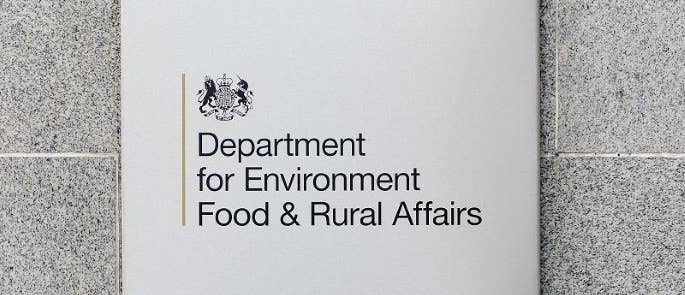
Image Credit
 What Were the Recommendations from The Elliott Review?
What Were the Recommendations from The Elliott Review?
Published in 2013 in the wake of the horsemeat scandal, the Elliott Review looked at the weakness of our food supply chain, and suggested measures for improvement. Its purpose was in response to a growing concern about the system used to deter, identify and prosecute food crime. The review aims to make recommendations designed to protect food business and help restore consumer confidence. There are 8 pillars of food integrity and they must all be considered together. A summary of their main points is shown below.
Consumers First
The government should make consumer food safety and protection from food crime a top priority.
Zero Tolerance
Food fraud or food crime should be punished in the harshest way possible to deter criminals. The government should work with the food industry to reduce the threat of food fraud and food crime, to develop whistleblowingprocedures and encourage industry sampling and checking of food at all stages of the supply chain.
Intelligence Gathering
The Food Standards Agency should lead for the government and share intelligence with the industry. Meanwhile, the industry should have its own 'safe haven' to collect, collate and analyse information.
Laboratory Services
These should be standardised and available to those involved in audit and inspection. The government should work to develop 'Centres of Excellence' and foster relationships across the industry. They should partner with Public Health England and local authorities to work towards shared a scientific service.
Audit
Audits are necessary in identifying food crime in supply chains and should be encouraged. The government should encourage fewer audits but make them more effective by arriving unannounced. They should develop specialist training and advice for detecting food fraud. The industry also needs to be able to recognise the risk of food fraud and introduce anti-fraud auditing measures.
Government Support
This needs to be SMART (Specific, Measurable, Attainable, Realistic and Timely), and should support and reaffirm its commitment to an independent FSA. The government should also create a National Food Safety and Food Crime Committee.
Leadership
There is a clear need for leadership and cohesion when dealing with food fraud and food crime. The public interest must be recognised by active enforcement and significant penalties for serious food crimes. The government should support the creation of a new Food Crime Unit under the FSA and support them in taking the lead role on national incidents.
Crisis Management
Where any serious food safety or food crime incidents occur, the government should protect public health against risks and work with the FSA to implement contingency plans in case of another food safety and/or food crime incident.

What Did the Horsemeat Scandal Teach Us?
The horsemeat scandal taught us how susceptible to fraud and crime the food industry can be. The Elliott Review made it clear how the extent of food fraud and food crime has previously been unrecordable.
In attempts to quantify the level of food crime, the Elliott Review contacted the territorial police forces in England and Wales who mentioned the problems with obtaining this information. There was no central body in charge of these types of crime, and there was no central database to store records. This meant you could not search for crimes relating to food fraud or food crime. The call to industry to request evidence of food fraud also had limited results, either being insignificant concerns or already widely known problems. Where suspicions were stated, it mainly involved products from a third party.
This lack of accountability and centralisation does not help in the war against food fraud. Indeed, the loopholes and 'under the radar' approach that criminals have taken are the primary reason they have been able to get away with food crimes so successfully. The horsemeat scandal is an example of how criminals can infiltrate supply chains of legitimate businesses, without their knowing, causing huge impact both across the industry and down to individual consumers.
Since the horsemeat scandal, the recommendations of the Elliott Review have been considered, and are someway to being fully implemented…
…But are we in a better position now than we were in 2013?
When we compare 2013 to 2019, we can see there have been strides made to implement the 8 pillars Elliott recommended. The National Crime Unit (NCU) was established to aid intelligence gathering and to help with investigations. Ideally, as Elliott recommended, the NCU should have its own authority to make arrests and lead investigations, such as the Dutch unit do. However, they do work very closely with Europol and the Food Fraud Network, and continued involvement and co-operation of these bodies will only help us combat food fraud.
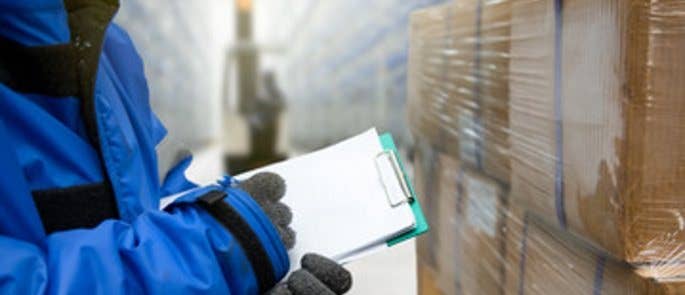
Evidence of this is seen in the annual coordination of Interpol and Europol and their food fraud investigations under the operation title Opson. Every year Opson works with numerous countries and reports its findings in food fraud.
Opson comes from the Greek word meaning food. The Opson VI investigation saw the involvement of 61 countries.
In the wake of Horsegate there has been a considerable increase in authenticity testing. Carried out as part of general industry audit work, it involves targeted and planned testing. In April 2014, a second round of coordinated pan-European testing for horse meat DNA in beef products was launched. This second round of testing showed only 0.61% of samples tested positive, a vast improvement.
 Should We Still Be Worried?
Should We Still Be Worried?
There is no doubt that big steps have been taken to help make our food safer and less at risk of food fraud and food crime, but there is always more to be done with this ever-advancing crime.
Case Study 1
Recent scientific work from the Quadram Institute in Norwich has established a test to differentiate between buffalo mozzarella and mozzarella made with cows' milk. To test the usefulness of this work, they sampled mozzarella from supermarkets and restaurants.
Findings
Eight samples from the supermarkets had ingredient labels saying buffalo mozzarella and 100% were labelled correctly. Of the five samples from the supermarkets that were labelled as simply 'mozzarella', 100% were made with cows' milk.
Of the products sold as 'supermarket pizza carrying buffalo mozzarella', 'supermarket pizza carrying mozzarella', 'restaurant pizza bearing buffalo mozzarella', and 'restaurant other (salads and pastas) also bearing buffalo mozzarella'- two thirds of these had at least some cows' milk in the cheese. In some cases, the buffalo mozzarella advertised was in fact 100% cows' milk mozzarella.
Conclusion
Consumers are the obvious victims in these cases. As buffalo mozzarella is a premium product, they are paying more for a product they are not getting. However, consumers are likely not the only victims. The fact that some mozzarella was a blend of buffalo and cows' milk indicates that the adulteration happened early in the supply chain. This means that restaurants and supermarkets are also victims, as too might be the cheese producers, if they are unwittingly supplied milk from undeclared sources.
Case Study 2
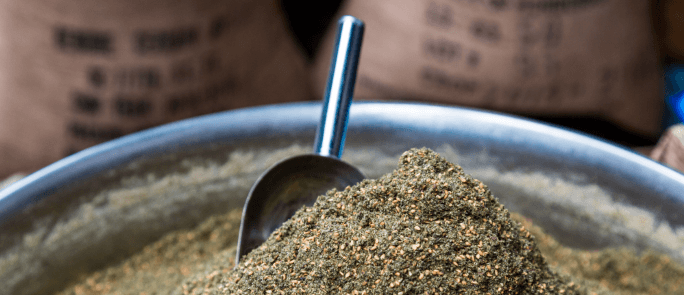
Since 2014, restaurants and takeaways have been required by law to tell customers if a dish contains any of the 14 allergens. There have been numerous cases recently where peanuts have entered dishes through spice mixes.
Due to a global shortage in 2014 after failed crops in Southeast Asia, prices of cumin increased. This meant mixes were being bulked up with cheaper alternatives to keep costs down. Sometimes this is done fraudulently and proprietors don't know the product contains other ingredients. At other times, it is labelled correctly and it is the proprietor who fails to pass this information onto the customer. This was sadly the case for Paul Wilson who died from anaphylactic shock after eating a takeaway containing peanuts in 2014.

How has the industry responded?
Clearly, fraudulent food items can have very serious consequences on public health. The Food Authenticity Network, which was recommended by the Elliott review as necessary to the "integrity and assurance of Food Supply Networks", aims to raise awareness of the tools available to check for mislabelling and food fraud. The network has recently joined forces with private company LGC to ensure there is access to laboratories which provide fit for purpose testing to check for food authenticity. This ensures that consumers can have confidence in the food they buy.
Since Horsegate, retailers have taken enormous steps to improve their supply chains, and the big retailers have stringent testing processes in place. However, as Elliott warns, food chains are now so complicated that the finished product we buy from our suppliers, or as consumers from the supermarket shelves, could easily have untraceable and fraudulent content. The only way we would know this is if we put it under a microscope and tested the content of the product itself. As purchasers, this is not feasible, and so we rely on those who can to stamp down on food crime on our behalf.

Recent research by NFU highlighted that consumers trust takeaways the least in terms of serving fraudulent food, indicating they need to work harder to prove their integrity. The type of food consumers trusted least was processed foods and red meat. Horsegate clearly had a lasting effect on the consumer psyche.
As a food retailer – whether it be a takeaway, restaurant, butcher's shop, catering supplier or anything else – having traceable food, a short supply chain, and stocking British food items will all go a huge way to establishing yourself as a reputable establishment and in gaining customer support.
 What Did We Learn?
What Did We Learn?
The horsemeat scandal taught us a lot about our vulnerabilities when it comes to food fraud, not least the impact a high-profile case like that can have on the economy, and the wider food industry across continents. After such a scandal, people understandably feel uncertain about food and lose trust in food provenance.
Additionally, the results of Opson VI (March 2017) resulted in the seizure of fraudulent foods to an estimated sum of £205m. But food crime is already a billion-pound business with links to organised crime being well known. In Italy they have been dubbed the 'agromafia'. The food fraud business is estimated to be more lucrative than the small arms trade and drug smuggling combined.
The take home message we should learn from the horsemeat scandal must be this: food crime is real, it happens globally, and it costs every single person dearly.
Should we still be worried? Yes.
Where there is potential for crime to exist, criminals will exploit and thrive in all the gaps they find. As food crime grows, so does the cleverness of the criminals and the ways in which they can infiltrate the industry.
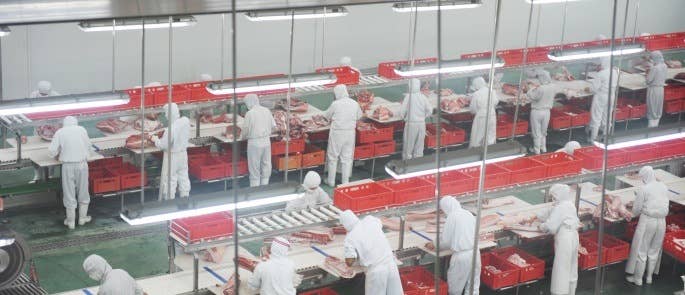
 What Can We Do?
What Can We Do?
Food fraud is a topic we all need to stay on top of. We all need to take responsibility for preventing food fraud and food crime where we can, both as workers within the industry, and as consumers.
If you suspect something fraudulent in your restaurant, supply chain or your supermarket, you can check your company whistleblowing procedure, or report it confidentially through the FSA website, via email, or by calling the Food Crime Confidential line on 020 7276 8787.
There is no doubt food fraud costs businesses every day. As a business, implementing awareness and prevention programmes, training your staff and using suppliers with food defence strategies, will all help reduce this cost, and combat food crime. Read on to find out more about what food fraud is costing you. Showing your commitment to implementing prevention measures could give your business an edge and create strong ties with your customers.
Up Next: What is Food Fraud Costing Your Business?
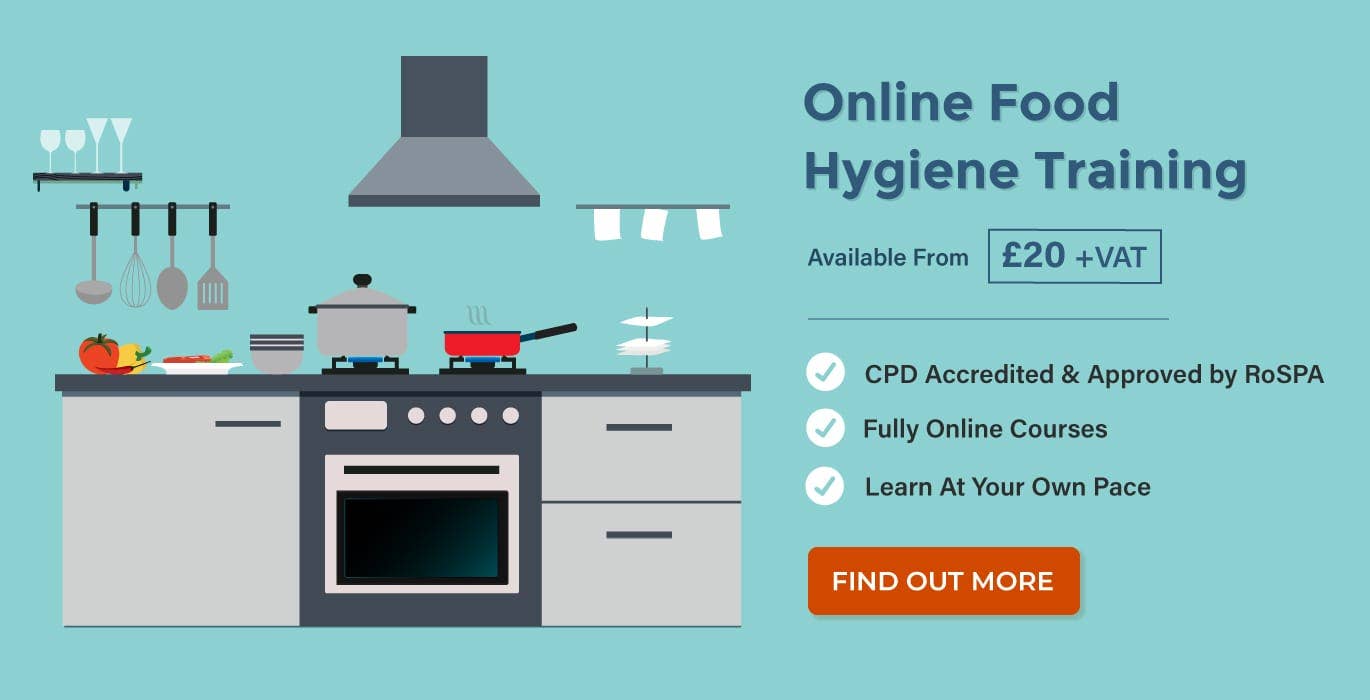
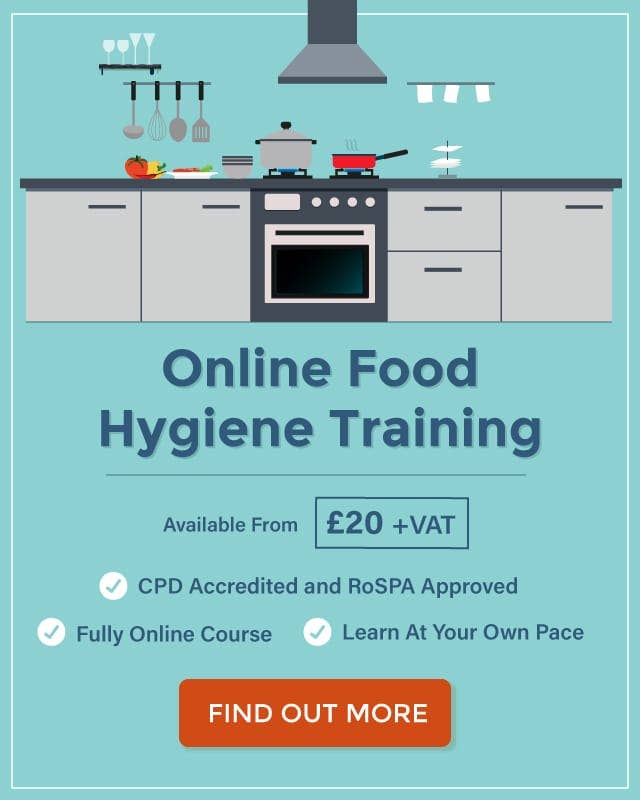
Source: https://www.highspeedtraining.co.uk/hub/horsemeat-scandal-facts-and-effects/
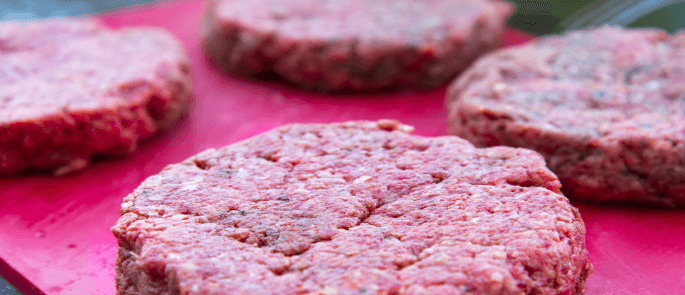

Post a Comment for "Does Findus Beef Burgers Still Exist"